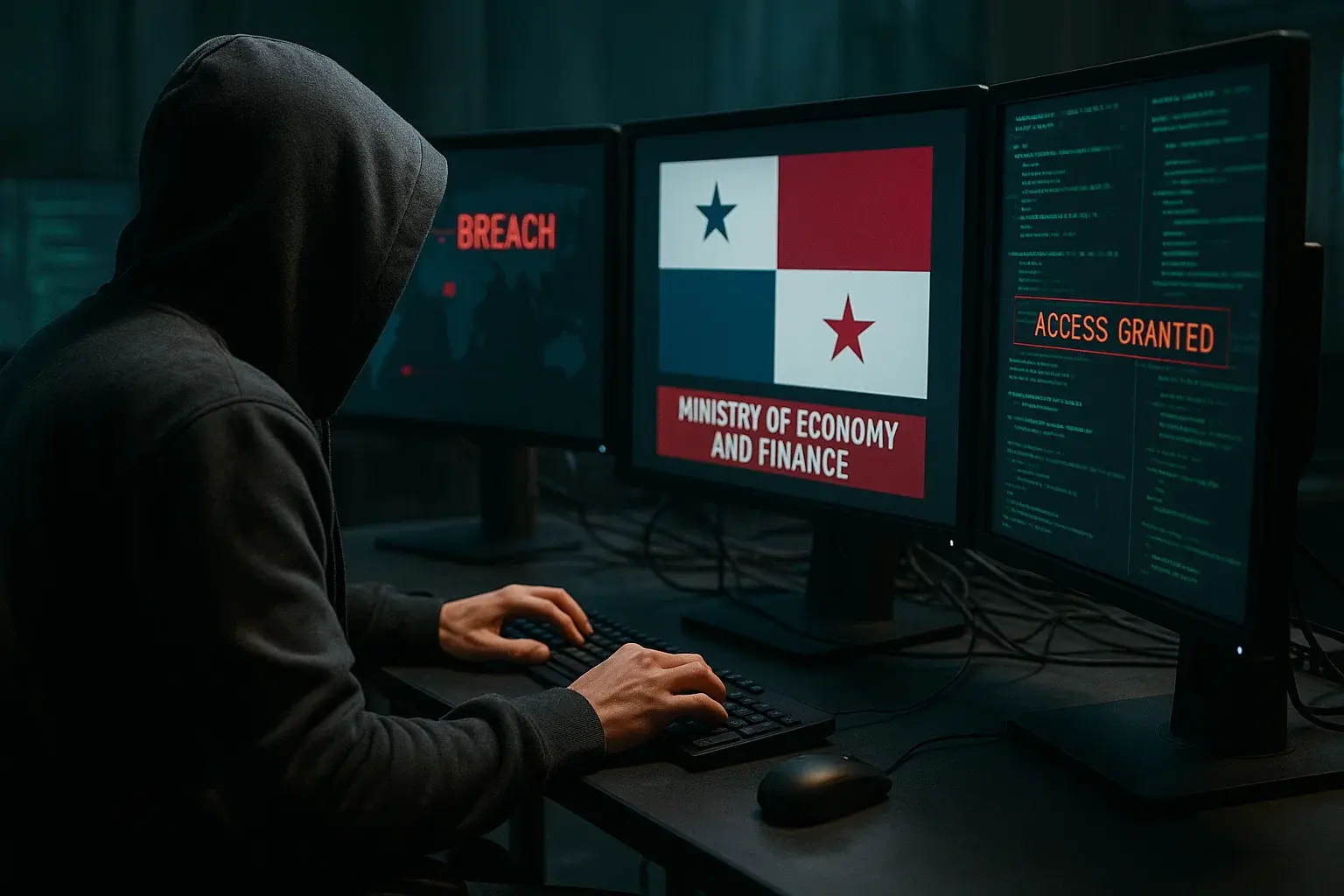Imagine waking up to the news that Panama’s Ministry of Economy and Finance (MEF) suffered a cyberattack, and that cybercriminals stole over 1.5 terabytes of confidential data: internal emails, financial documents, budgets, and sensitive records. This isn’t a Hollywood script—it’s a real-world incident recently claimed by INC Ransom, one of today’s most active ransomware groups.
At TecnetOne, we’re breaking down what happened, how the attack unfolded, and—most importantly—what lessons your organization can learn to avoid becoming the next victim.
What Happened to Panama’s MEF?
The MEF confirmed that one of its systems was compromised and that malware had been detected within its infrastructure. Security protocols were immediately activated to contain the threat and prevent further spread across the network.
While the official statement claimed that MEF’s central systems remained unaffected, the calm didn’t last. The INC Ransom group claimed responsibility and stated they had exfiltrated over 1.5 TB of critical data. As proof, they published a sample and warned that more files would be leaked unless contacted by ministry officials.
Who Is INC Ransom?
If you haven’t heard of them, INC Ransom emerged in 2023 and quickly made headlines with attacks on Xerox Business Solutions and McLaren Health Care in the U.S.
Their modus operandi is textbook ransomware:
- Exploit vulnerabilities or use phishing to infiltrate systems
- Exfiltrate large volumes of sensitive data
- Extort the victim, threatening to publish the data unless a ransom is paid
Their attacks often combine public shaming with dark web data sales, amplifying both the financial and reputational damage.
Similar titles: The Biggest Cyberattack on Brazil's Financial System
Why This Case Is Especially Concerning
You might think an attack on a foreign government agency doesn’t affect you—but it does. Events like these send a clear message: no institution or business is off-limits.
In Panama’s case, the exposure of names, emails, addresses, and financial data could lead to:
- Identity theft for financial or legal scams
- Phone-based frauds using real data
- Targeted attacks on businesses or individuals tied to the ministry
- Public distrust in one of the country’s key economic institutions
Now ask yourself: What would happen if your company leaked contracts, invoices, or internal communications?
What Can Your Business Learn From This?
At TecnetOne, we believe every incident like this is a reminder that prevention is cheaper than recovery. Here are practical takeaways:
- Continuous Monitoring: MEF detected the intrusion thanks to active detection systems. Yet many businesses in Latin America still lack 24/7 threat monitoring.
- Containment Protocols: Quickly isolating the threat helped MEF protect its core systems. Does your company know what to do if an incident occurs?
- Sensitive Data Management: Attackers go after what hurts most: financial docs, internal emails, client data. Identifying and classifying critical information is essential to protect it.
- Incident Response Plans: It’s not just about stopping the attack—you need to continue operations, communicate clearly, and minimize long-term impact.
- Strategic Partnerships: Most institutions don’t have enough in-house experts. That’s where a cybersecurity partner like TecnetOne becomes a game-changer.
Learn more: Mexican Water Infrastructure Under Fire: Rising Cyberattacks
How TecnetOne Helps
We partner with leading cybersecurity providers to help shield your business against ransomware and other cyber threats:
- Acronis Backup & Endpoint Protection: As official partners, we deploy immutable backup and advanced endpoint security—so your data is safe and recoverable even after an attack.
- Real-Time Monitoring (EDR/XDR): We detect suspicious patterns and contain threats immediately, minimizing damage.
- Business Continuity Planning: We help you build clear recovery protocols so that operations never fully stop.
- Employee Training: People remain the weakest link. We train your team to recognize phishing, avoid risky behavior, and act fast when it matters most.
Time Isn’t on Your Side
The MEF case shows it clearly: cybercriminals won’t wait. While governments debate policies, attackers are leaking data and negotiating ransoms.
It’s the same for businesses: delaying your security measures is an open invitation to threat actors.
That’s why at TecnetOne we insist—it’s not a matter of if you’ll face an attack, but when. The only way to be ready is to act early, with the right tools, processes, and partners by your side.


